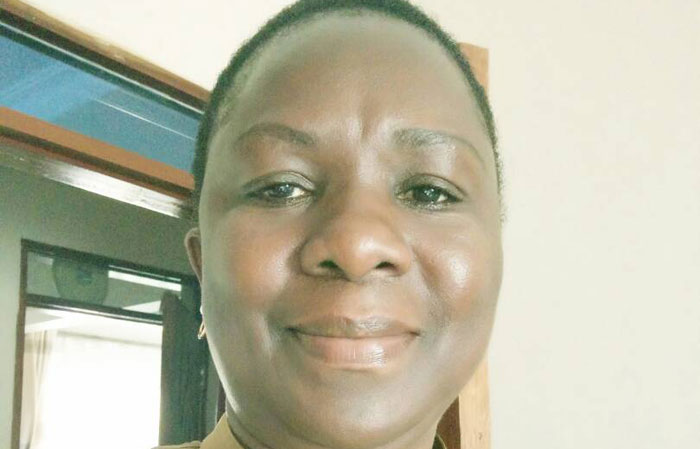Health
How excess blood almost cost her a life
Around the beginning of this year, Brenda Nyadoi didn’t quite understand what was going on in her life. She was feeling fatigued all the time, felt so heavy and at times felt paralysed in the leg.
Brenda, who works as an administrator at the Science Foundation for Livelihoods and Development (Scifode), didn’t attach greater meaning to these early signs. She instead chose to blame weight gain and excessive sitting at her work place as the cause of her lazy lifestyle. But as time went by, she started feeling regular headaches, for which she took pain killers.
After sometime and out of nowhere, she got a dark patch on the lower part of her legs.
She recalls: “The dark patch felt a bit hard but whenever, I would massage it, I would feel blood flowing once again to the lower parts of my leg.”
Around April, the signs had become more frequent to the point that she started feeling sickly. The sense that blood wasn’t flowing well, triggered panic inside her. She feared that perhaps she would get a blood clot. In the process, she was advised to take some aspirins as an anti-dote against things like blood clots.
She recalls that it was at one of the pharmacies in Wandegeya, that Nyadoi got the real scare.
“When I narrated my situation to the pharmacist, he refused to give me the aspirin tabs. Instead he advised me to have a full blood test. I got scared a bit. And one day when I had taken my niece to a clinic, I asked for a full test,” she recounts.
The result were alarming, even to the doctors. Most of the indicators were out of the normal range. The doctor concluded that she had excess blood, and that she needed to have some of it taken out of her system.
Although Nyadoi had never donated blood in her life, this time she was willing to have it taken away as soon as possible. But when she went to the blood bank in Nakasero for the exercise, they again asked for results of her full blood check-up so as to confirm her claim.
The results indicated she was in danger. Perhaps because of the fear that had gripped her, her pressure had gone up and they couldn’t draw blood, until it was back to normal.
The blood drawing exercise took just under two minutes, faster than the normal rate, and probably another confirmation of the excess blood she had. But the sight of blood leaving her veins brought her a sense of instant relief. Despite her eagerness to donate, experts told her she wasn’t a donor. Her blood was too thick and dark – it was simply poured away.
Ever since the shocking experice, Nyadoi has been feeling lighter. But she relishes the fact that she is alive and living a healthier life.
Nyadoi says ever since the bloodletting was carried out, Nyadoi feels a new lease of life.
“All of a sudden, I feel lighter, agile and no more headaches as I used to.”
How did she get there
According to health experts, the condition is not necessarily a disease but rather an outcome of malnutrition or excess consumption of body building foods such as proteins, vitamins and minerals that makes the body to make far more blood than it needs.
For Nyadoi, her situation wasn’t any different. She was advised that her favourite drink of Bushera coupled with her favourite source of beans and almost daily leafy vegetables were the perfect source of her problem.
She was advised to balance her meals but also to ensure that she makes regular check-ups.
Despite her reclusive character, Nyadoi says she feels everyone should take regular health check-up to avoid falling victim to avoidable conditions.
“Many people were praising me that I was looking nice because I had gained weight. With such complements, some people tend to ignore the danger lurking in being over-weight.”
“A number of people live with signs such as those that I had but sometimes fear to go for a test. I was surprised that I was charged less than UGX20,000 for a full blood test.”
Comments



























